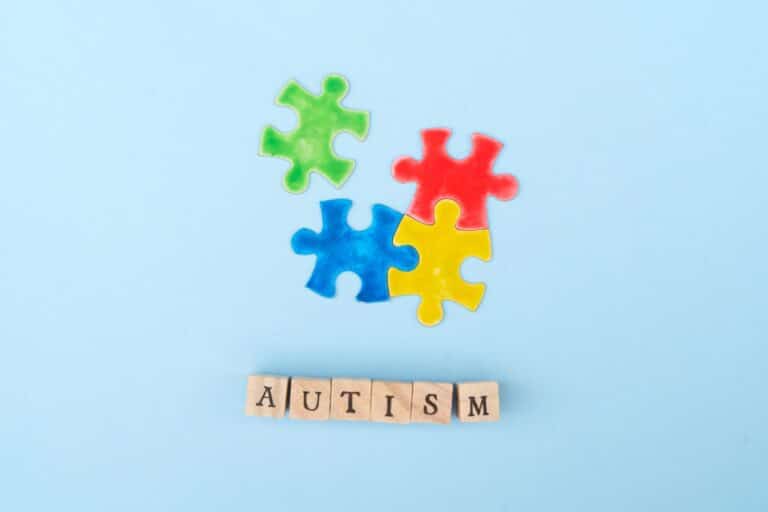Adderall is prescribed by physicians to help combat attention deficit hyperactivity disorder (ADHD). It helps to change chemicals in the brain, increasing focus and helping to control behavior issues. The medication also treats narcolepsy, a sleeping disorder.
With over 6.6% of U.S. adults using the drug, many experiences a crash when the medication wears off. Here is why that happens and how to help manage those comedowns.
Adderall Addiction
People abusing Adderall feel a heightned sense of alertness and focus. But when the drug wears off, it can give them the opposite effect meking them feel tired and sluggish.
Adderall is frequently abused to increase alertness and productivity. Many of them are motivated individuals who do not fit the stereotypical drug user stereotype. More than not, individuals who abuse adderall are usually students or young professionals.
Another cause for the adderall crash? Improper use. Because it is a stimulant, physicians agree that it should be taken either in the morning or early afternoon to not disrupt sleep patterns. Following proper dosage instructions will help limit any withdrawal symptoms.
Signs of adderall addiction can include:
- Being overly talkative
- Loss of appetite
- Unusal sense of excitement
- Social withdrawal
- Financial troubles
- Becoming aggressive
- Not sleeping
- Exhaustion
- Memory loss
- Increased weight loss
- Decrease in personal hygiene
- Impuslive behavior
What Are the Withdrawal Symptoms?
The temporary adderall withdrawal symptoms are different for everyone. However, if someone suddenly stops the medication or takes it incorrectly, they can expect the following:
- An intense craving for the medication
- Agitation, anxiety, and irritability
- Sleep problems
- Increased appetite
- Panic attacks
- Feelings of depression
- Headaches
- Lack of motivation
- Impuslive behavior
The symptoms are often worse for those that take larger doses of the medication or have been on it for a long time. People should avoid continued use of adderall to avert a crash. This could lead to an overdose with symptoms like an irregular heartbeat, confusion, and hallucinations.
Adderall Withdrawal Timeline
Withdrawal symptoms generally aren’t noticed immediately. Instead, they normally occur up to a few days later. They can last for a week or two, but those using the medication for longer could experience symptoms for a few weeks or even months.
The dosage amount also plays a role in the severity of the symptoms. Not everyone will experience the same or all the symptoms, but this is a typical outline of what to expect.
- Days 1-3: Initial symptoms begin. They usually include fatigue, depression, and trouble sleeping.
- Days 4-7: Sleep problems continue, and the person may feel irritable or anxious. They may have trouble concentrating and experience headaches and other body aches.
- Week 2: Sleep can still fluctuate but should start returning to normal around this time. The person might have extreme mood swings and feel overwhelming sadness. Significant cravings for the drug during this period is normal as well.
After the second week, the majority of symptoms should start to subside. Of course, some could still linger depending on the length of adderall use. Long-term withdrawal symptoms typically consist of fatigue, mood swings, and a severe craving for the drug. Most people report they see a general improvement in their mood and functions within one to three months of stopping adderall.
How to Manage the Adderall Comedown
An adderall crash is difficult on both the body and the mind. However, there are some things a person can do to help ease their discomfort.
There are no medications available to help treat adderall withdrawal symptoms. If a person experiences extreme mood swings, including depression and anxiety, a physician could prescribe antidepressants or other anxiety medications to help in the meantime.
Headaches and body aches are common during the withdrawal process. Taking over-the-counter painkillers like acetaminophen or ibuprofen can help with those symptoms. Since sleep or lack thereof is a common complaint, many doctors will prescribe a sleeping aid to help.
Any other medication or stimulant is not recommended. Many people that are trying to combat adderall withdrawal often try to use other pills or alcohol as a coping mechanism. Doing this can often delay the crash or cause addiction concerns.
Tips to Cope with the Crash
- Keep hydrated to help flush toxins out of the body. Drinking plenty of water can help those recovering feel their best. Sipping on warm soothing teas can add comfort during times of distress.
- Eating a well-balanced diet with plenty of fruits and vegetables can help ease withdrawal symptoms. Maintaining a normal eating schedule with nutritious foods can help with feelings of lethargy.
- Cravings can be intense during the withdrawal period, so it is important to recognize them and know they are temporary. Find distractions to help deal with them. Doing light exercises like going for a walk or talking with a friend helps many resist cravings.
- Try to stay on the same sleep schedule. Make the bedroom a calm retreat – use room darkening shades and a white noise machine. Make sure to refrain from electronics before bedtime since they can disrupt sleep.
- Try to relax and stay calm. Practice mediation or yoga to stay grounded.
Some people are not bothered by Adderall withdrawal, and others really struggle. Following a doctor’s advice is one of the best ways to detox and come off the drug.
How to Get Help
Adderall is commonly prescribed by doctors to help those with ADHD. However, if not taken properly, it can easily become addictive. Misuse of the drug, especially by those without a prescription, continues to rise. Taking high doses of the medication can cause feelings of euphoria, making the user crave those feelings when they are on the downswing.
In extreme cases, adderall can cause cardiac arrest and psychosis. Treating adderall addiction and its inevitable crash can require professional help. As noted earlier, abruptly stopping the drug can cause severe withdrawal symptoms.
Supervised detox can help ensure patient safety. They will also have access to a full medical team, including counselors and other unique treatment options.
Southern California Sunrise Recovery Center can aid those looking to kick their Adderall habit and successful detox in a safe environment. To get more information, contact us or call (855) 652-3889.






